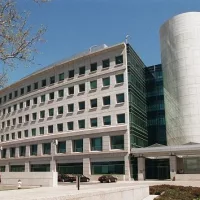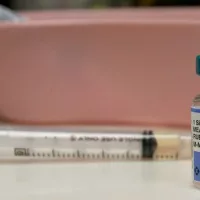
AgFang/iStockBy DR. SABINA BERA, ABC News
(NEW YORK) — The appearance of multisystem inflammatory syndrome in children (MIS-C) linked to COVID-19 infection has left many parents scared for their children’s health amid the pandemic. Although studies are limited and the syndrome is considered very rare, MIS-C is a serious illness that has lead to many child hospitalizations.
While research is underway to answer burning questions about MIS-C, there has been debate in the medical community around what causes the syndrome.
Some experts, like Dr. Sharon Ostfeld-Johns, an assistant professor of clinical pediatrics at Yale University, argue that MIS-C “isn’t the mystery it’s made out to be.” In a recent opinion piece published in STAT news, Ostfeld-Johns said that while treating young patients with the syndrome, she realized it “was COVID-19, the same disease I was treating in my adult patients.”
But some experts say it’s still too early to make that statement.
“We sometimes forget COVID-19 has been around for seven to eight months, so there is a lot we are still learning about how the immune system reacts to the virus,” said Dr. Edith Bracho-Sanchez, a pediatrician and assistant professor of pediatrics at Columbia University.
At this point, MIS-C is classified as a “syndrome, not a specific disease,” said Dr. Paul Offit, a professor of pediatrics at Children’s Hospital of Philadelphia, and a co-inventor of the rotavirus vaccine.
MIS-C isn’t considered a disease yet because we simply don’t know much about it. A collection of symptoms can be grouped to form a syndrome, which helps doctors find more cases and eventually identify a root cause. But Offit said we don’t know the answer to the most crucial question about MIS-C: why these symptoms are appearing in kids.
Often, the debate about MIS-C comes down to a phenomenon in the body that can appear in both kids and adults infected with the virus: a cytokine storm. When confronted with a foreign invader like a virus, our bodies can respond with inflammation to target it. Cytokines, small proteins in the body, are released to help manage the response. In a cytokine storm, the body releases too many cytokines too quickly, which can be very harmful.
According to Ostfeld-Johns, this phenomenon we see in adults — that their immune systems overreact, prompting a dreaded cytokine storm — is the same phenomenon seen in children with MIS-C.
But not all experts agree that MIS-C is just how COVID-19 shows up in kids. Bracho-Sanchez, who does not feel that MIS-C can be characterized as severe COVID-19 in children, said there must be something else making these children sick.
“The cytokine storm might be a part of the inflammatory reaction that underlines what we now know in MIS-C, but is it not the only thing going on and we still have a lot to learn,” said Bracho-Sanchez.
Understanding the root cause of MIS-C would certainly help pediatricians treat their young patients.
Ostfeld-Johns said there are differences between the physiology of adults and that of children, but she believes the “exuberant inflammatory response to the coronavirus” is the same. She said this distinction is important as it may help doctors apply “the same treatment principles in both populations.”
Offit agreed that when you peer inside the bodies of two adults infected — one with MIS-C and one with COVID-19 — the similarities are clear.
“The pathogenesis is similar,” said Offit. “I think this is all vasculitis,” which is the inflammation of blood vessels. He explained that multiple organs are involved because “all organs have a blood supply,” resulting in an inflammatory response in children and adults.
But the fact remains that MIS-C in children is a very rare event, whereas among adults, it’s not uncommon for people to be hospitalized with a severe cytokine storm as part of their COVID-19 disease. According to Bracho-Sanchez, this just shows that the two phenomenons are different.
“I don’t think we get to say this is just COVID-19 in children, because I worry we lose the nuance and we forget that for most kids, COVID-19 is actually a very mild illness,” she said.
“Yes, there is a real risk for complications when it comes to MIS-C, but it is not the typical manifestation for children,” said Bracho-Sanchez.
Experts have also debated whether it’s appropriate for the Centers for Disease Control and Prevention (CDC) and other public health agencies to rush to categorize MIS-C as a syndrome unique to children.
As of July 15, the CDC has classified MIS-C as a separate syndrome and has reported more than 340 cases across the country. A spokesperson from the New York State Department of Health said COVID-19 “is still a relatively novel condition” and “the observations of treating physicians are critical to our understanding of SARS-CoV-2 and how it affects patients — from infants to the elderly.”
“There was no standard definition of a diagnosis of something similar in adults, the way that the CDC made those criteria for MIS-C early on,” said Ostfeld-Johns. She is concerned that quick categorization may prevent doctors and pediatric physicians from recognizing “this is the same thing.”
Bracho-Sanchez pointed out that many of the physicians that saw the first cases of MIS-C in children were pediatricians who had been deployed to take care of adults, so they were familiar with other inflammatory syndromes in children.
“I don’t believe they rushed to characterize this,” she said. “I don’t believe that they did it without taking into account what the adult manifestations were.”
Offit said classifying it as a syndrome could lead to a best-case scenario, which is finding the specific cause behind it. Studying it as a syndrome can also give doctors clues about any patterns that show up, including ages, racial and ethnic backgrounds and other risk factors that may be associated with the condition.
While it remains unclear how and why MIS-C develops in children, Ostfeld-Johns feels it’s important for parents to be aware of it and keep it in the conversation.
Bracho-Sanchez said MIS-C “is a rare condition, which is somewhat reassuring, but more children getting infected with this virus [will lead to] more [suffering] from this complication.”
Copyright © 2020, ABC Audio. All rights reserved.















